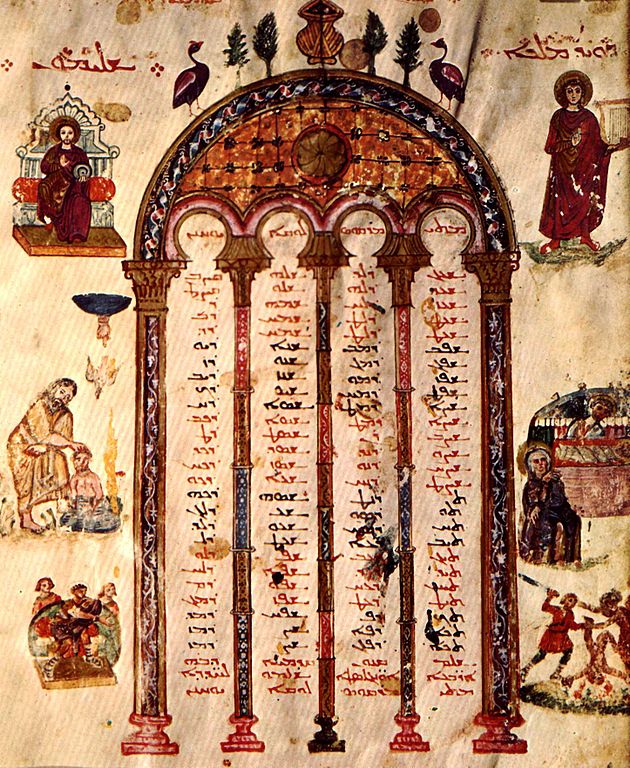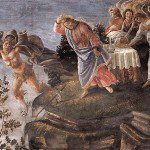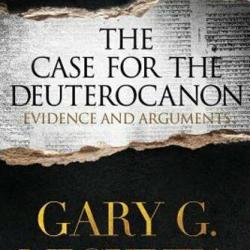Martin Luther’s words will be in green.
* * * * *
There is a famous citation from Martin Luther, the Founder of Protestantism: “The book of Esther I toss into the Elbe [river]”. Or are these really the words of Luther? Apparently this is indeed a misquote. The John Aurifaber version of Table-Talk, translated by William Hazlitt, available online, reads in its section XXIV: “The third book of Esdras I throw into the Elbe.”
Mea culpa on behalf of all those (including yours truly) who have wrongly used this false citation in the past or present. Falsehood of any sort (whether inadvertent or not) does no one any good. Mine was an honest mistake. And as we shall see, scholars have done the same. it is one of those errors that got passed down through history.
This one erroneous citation doesn’t mean, however, that Luther didn’t denigrate and even deny the canonicity of the book of Esther (only this particular “proof” was — by all appearances — a botched citation at some point in the textual history; the question of who made the error will be further discussed below). For the very same section of Table-Talk also includes the following words from Luther:
I am so great an enemy to the second book of the Maccabees, and to Esther, that I wish they had not come to us at all, for they have too many heathen unnaturalities. The Jews much more esteemed the book of Esther than any of the prophets; though they were forbidden to read it before they had attained the age of thirty, by reason of the mystic matters it contains.
Even this quotation, however, gives support to the accuracy of the second mention of Esther above, as genuine (“Oh, how fond they are of the book of Esther, . . .” — from LW, 47:156 — cf. above: “The Jews much more esteemed the book of Esther than any of the prophets”). It gives a correlation to a statement of Luther that does quite arguably question the canonicity of Esther. Luther also wrote in Bondage of the Will:
[T]hough I could rightly reject this book [Ecclesiasticus], for the time being I accept it so as not to waste time by getting involved in a dispute about the books received in the Hebrew canon. For you poke more than a little sarcastic fun at this when you compare Proverbs and The Song of Solomon (which with a sneering innuendo you call the “Love Song”) with the two books of Esdras, Judith, the story of Susanna and the Dragon, and Esther (which despite their inclusion of it in the canon deserves more than all the rest in my judgment to be regarded as noncanonical).
(LW 33:110)
Here is a second rendering:
Though I might with justice repudiate this book [Ecclesiasticus], yet for the present I receive it, so as not to lose time by entangling myself in a dispute about books received into the Jewish canon. You are somewhat biting and derisive yourself about that canon, when you compare the Proverbs of Solomon and the Love-song (as with a sneering innuendo you term it) to the two books of Esdras and Judith, and the History of Susanna and of the Dragon, and the book of Esther (though they have this last in their canon; in my opinion, however, it is less worthy to be held canonical than any of these).
(The Bondage of the Will, J.I. Packer and O.R. Johnston translation, Grand Rapids: MI: Revell, 1957, Reprint October 1999, 143)
So now we have the evidence of Luther saying he is an “enemy” of Esther; wishing that it “had not come to us at all” and that it is “less worthy to be held canonical” than “Esdras and Judith, and the History of Susanna and of the Dragon”: books universally regarded by Protestants as non-canonical.
Many Protestant interpreters, like F. F. Bruce, the great Bible scholar, have no problem recognizing that Luther regarded Esther on the same plane as the “apocryphal” 2 Maccabees, based on the Table-Talk citation seen above:
. . . Luther manifested a special animus against 2 Maccabees . . . It is noteworthy that he shows his exercise of private judgment here by including Esther under the same condemnation as 2 Maccabees.
(The Canon of Scripture, Downers Grove, Illinois: Intervarsity Press, 1988, 101)
Indeed, even The International Standard Bible Encyclopedia, no shill for nefarious Catholic apologetics (“Esther, Book of”, Vol. II, 1007), states:
The Attacks upon the Book:
The opponents of the Book of Esther may undoubtedly boast that Martin Luther headed the attack. In his Table-Talk he declared that he was so hostile “to the Book of Esther that I would it did not exist; for it Judaizes too much, and has in it a great deal of heathenish naughtiness.” His remark in his reply to Erasmus shows that this was his deliberate judgment. Referring to Esther, he says that, though the Jews have it in their Canon, “it is more worthy than all” the apocryphal books “of being excluded from the Canon.”
Remarkably, another 1823 translation of Bondage of the Will literally reverses the judgment at the end (thus directly contradicting the versions in Luther’s Works and the recent J.I. Packer translation):
Perhaps the clearest way to come to a conclusion is to read the old Henry Beveridge translation of the this [sic] Tabletalk [sic] utterance:
“. . . and the Book of Esther, though they have this last in their canon, and according to my judgment, it is much more worthy of being there, than any one of those that are considered not to be in the canon.”
[my emphasis added]
This version was translated by Henry Cole in 1823. Here also is the additional translation of The Bondage of the Will (also from 1823) of Edward Thomas Vaughan:
. . . and Esther. This last, however, they have received into their canon; although, in my judgment, deserving, more than all the rest, to be excluded.
Vaughan comes down on the side of Luther’s Works and Packer / Johnston, though in a footnote he tries to apply this mention of “Esther” to only additional chapters of it not accepted by the Jews. In any event, that is three translations that read one way, and one that reads another, completely opposite way (what we might call “pro-Esther”).Two Protestant co-authors wrote about the mistaken “Esther” in the quote at the top of this paper:
Soon after the publication of this article, I became aware , that Esther was here a mistake for Esdras; and this by the verse quoted. The error stands in all Aurifaber’s editions of the Tabletalk; his text is taken by Walch, and from Walch I translated.
(Source: Thomas Carlyle, Sir William Hamilton, Life of Martin Luther [link] Michigan: American Book Exchange, 242)
So the error is a result, not of sinister “anti-Luther” Catholics, but of Joannes Aurifaber and Johann Georg Walch: respectively the Protestant writer and later compiler of Table-Talk. Carlyle and Hamilton’s book was published in 1879. So it was possible for one of them (Hamilton) to make this mistake 333 years after Luther’s death, because it was still that prevalent, due to a mistake somewhere along the line in the transmission of Table-Talk. This Protestant author also made the innocent mistake. The author, Sir William Hamilton, explains and justifies (to some extent) his mistake:
As to my error; I may say in excuse, if excuse be needed, that at the time of writing the article, not only was I compelled to make the extracts without any leisure for deliberation; but I recollected, though the book was not at hand, that Luther, in his work on the Bondage of the Will, had declared that Esther ought to be extruded from the canon, — a judgment familiar to every tyro even in biblical criticism . . . Esther, I thus knew, was repudiated by Luther, and among his formulae of dismissal, the preceding recommended itself as at once the most characteristic and the shortest.
(Ibid., 242-243)
The same writer (in context) definitely opines that Luther “repudiated” Esther and thought (on the basis of the passage we considered above) that it “ought to be extruded from the canon.”
In one fell swoop, then, we see that the notion of Esther’s non-canonicity as Luther’s own, is again supported, and the charge of mis-citation is shown to be ultimately the fault of Protestant biographers of Luther and compilers of his primary works, and those later biographers following them, rather than of Catholics. Hamilton writes on page 248:
In various of his works, and from an early to the latest period, Luther denied the canonicity of St. James’ Epistle.
He proceeds to give several proofs of his assertion.
The example of Esther is thus seen as merely one example of many, of biblical books that Luther felt free to judge wholly based on his subjective opinion. This folly flows from his prior erroneous presupposition, as described by the respected Lutheran scholar and Luther expert Paul Althaus:
He thereby established the principle that the early church’s formation and limitation of the canon is not exempt from re-examination . . . the canon is only a relative unity, just as it is only relatively closed. Therewith Luther has in principle abandoned every formal approach to the authority of the Bible. It is certainly understandable that Luther’s prefaces were no longer printed in German Bibles. One may characterize his attitude in this way: The canon itself was, as far as Luther was concerned, a piece of ecclesiastical tradition and therefore subject to criticism on the basis of God’s word.
(The Theology of Martin Luther, Philadelphia: Fortress Press, 1966, 85, 336)
Such an attitude is perfectly capable of being intelligently, rationally critiqued, and not just by Catholics. As I showed in my previous article on Luther and the canon, even very prominent Lutherans like Martin Chemnitz and C. F. W. Walther, the first president of the Lutheran Church – Missouri Synod, and current-day Lutheran apologist John Warwick Montgomery. Catholics have plenty of good Protestant company in this regard of Luther’s view of the biblical canon.


















